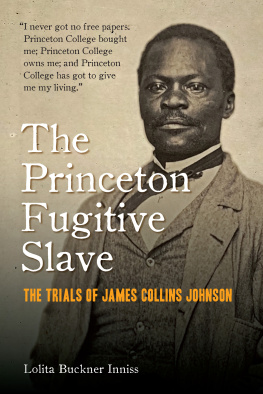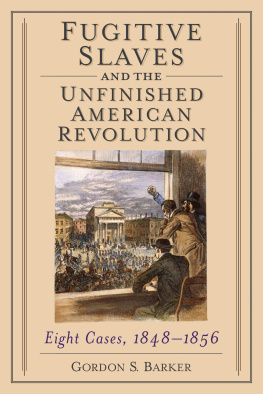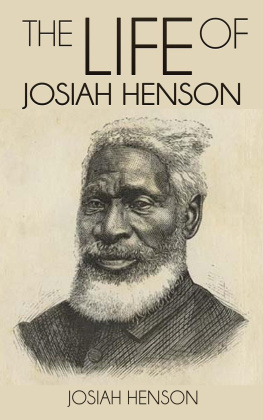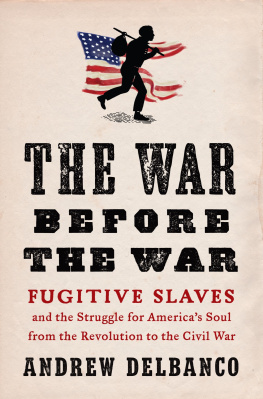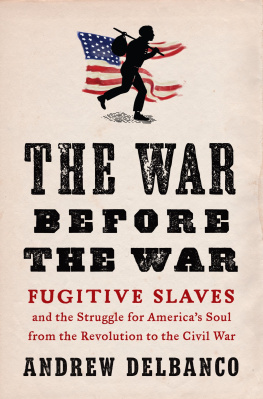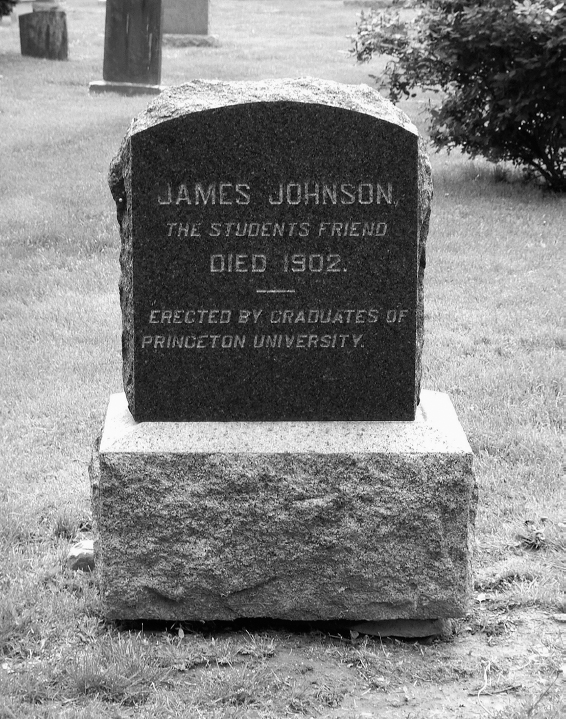Lolita Buckner Inniss - The Princeton Fugitive Slave: The Trials of James Collins Johnson
Here you can read online Lolita Buckner Inniss - The Princeton Fugitive Slave: The Trials of James Collins Johnson full text of the book (entire story) in english for free. Download pdf and epub, get meaning, cover and reviews about this ebook. year: 2019, publisher: Fordham University Press, genre: Romance novel. Description of the work, (preface) as well as reviews are available. Best literature library LitArk.com created for fans of good reading and offers a wide selection of genres:
Romance novel
Science fiction
Adventure
Detective
Science
History
Home and family
Prose
Art
Politics
Computer
Non-fiction
Religion
Business
Children
Humor
Choose a favorite category and find really read worthwhile books. Enjoy immersion in the world of imagination, feel the emotions of the characters or learn something new for yourself, make an fascinating discovery.
- Book:The Princeton Fugitive Slave: The Trials of James Collins Johnson
- Author:
- Publisher:Fordham University Press
- Genre:
- Year:2019
- Rating:3 / 5
- Favourites:Add to favourites
- Your mark:
The Princeton Fugitive Slave: The Trials of James Collins Johnson: summary, description and annotation
We offer to read an annotation, description, summary or preface (depends on what the author of the book "The Princeton Fugitive Slave: The Trials of James Collins Johnson" wrote himself). If you haven't found the necessary information about the book — write in the comments, we will try to find it.
James Collins Johnson made his name by escaping slavery in Maryland and fleeing to Princeton, New Jersey, where he built a life in a bustling community of African Americans working at what is now Princeton University. After only four years, he was recognized by a student from Maryland, arrested, and subjected to a trial for extradition under the 1793 Fugitive Slave Act. On the eve of his rendition, after attempts to free Johnson by force had failed, a local aristocratic white woman purchased Johnsons freedom, allowing him to avoid re-enslavement. The PrincetonFugitive Slave reconstructs James Collins Johnsons life, from birth and enslaved life in Maryland to his daring escape, sensational trial for re-enslavement, and last-minute change of fortune, and through to the end of his life in Princeton, where he remained a figure of local fascination.
Stories of Johnsons life in Princeton often describe him as a contented, jovial soul, beloved on campus and memorialized on his gravestone as The Students Friend. But these familiar accounts come from student writings and sentimental recollections in alumni reportsstories from elite, predominantly white, often southern sources whose relationships with Johnson were hopelessly distorted by differences in race and social standing. In interrogating these stories against archival records, newspaper accounts, courtroom narratives, photographs, and family histories, author Lolita Buckner Inniss builds a picture of Johnson on his own terms, piecing together the sparse evidence and disaggregating him from the other black vendors with whom he was sometimes confused.
By telling Johnsons story and examining the relationship between antebellum Princetons black residents and the economic engine that supported their community, the book questions the distinction between employment and servitude that shrinks and threatens to disappear when an individuals freedom is circumscribed by immobility, lack of opportunity, and contingency on local interpretations of a hotly contested body of law.
Lolita Buckner Inniss: author's other books
Who wrote The Princeton Fugitive Slave: The Trials of James Collins Johnson? Find out the surname, the name of the author of the book and a list of all author's works by series.

